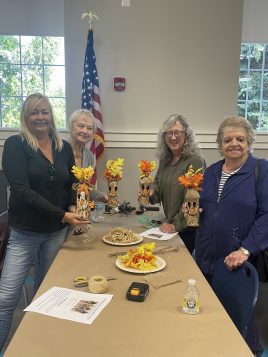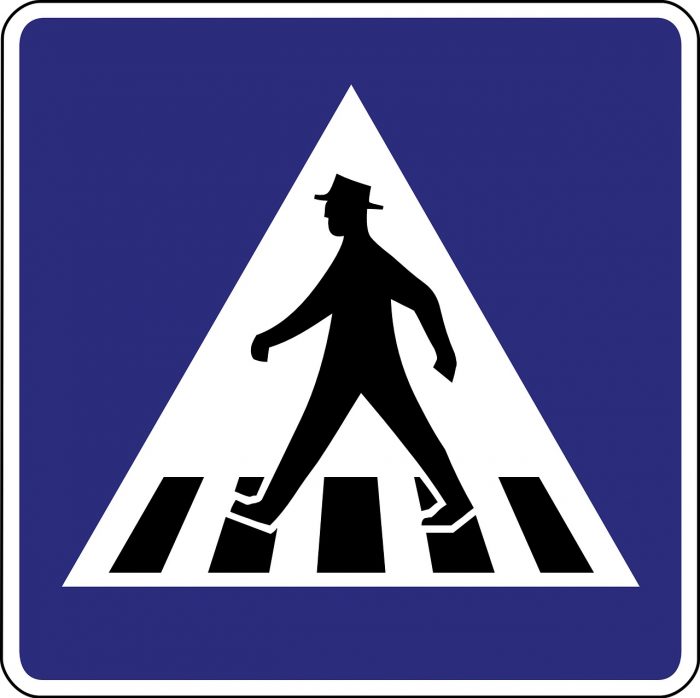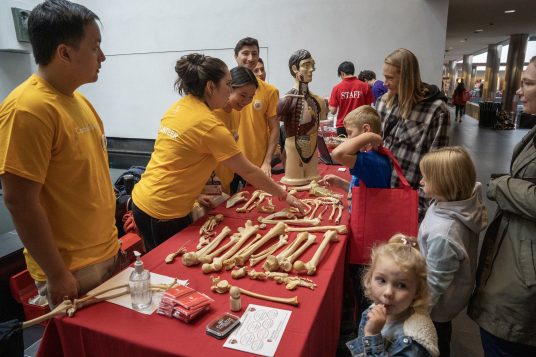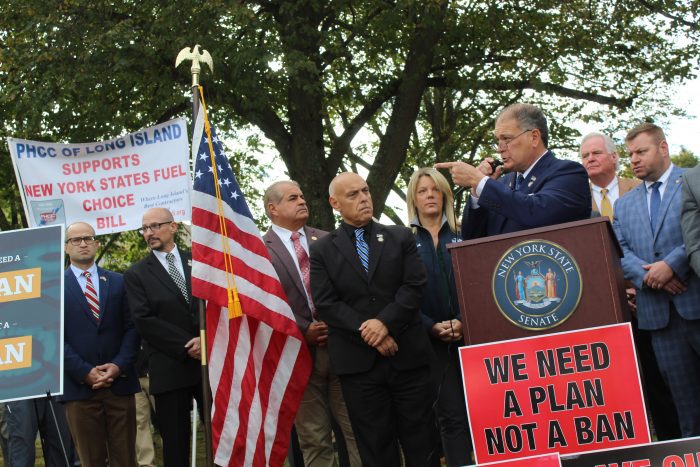Reviewing Figliola’s campaign record
Voters deserve elected officials who are transparent and truthful about who they are.
When a politician is seeking elected office, we must consider the candidate’s views and whether they are a good fit for the office they seek to represent.
Consider the case of Anthony Figliola, who is running for Suffolk County Legislature after an unsuccessful bid for U.S. Congress in 2022.
2022’s Anthony Figliola ran as a MAGA Republican who opposed reproductive rights, sought to ban books and censor what is taught in public schools, and opposed lifesaving science in the form of vaccines. 2022’s Anthony Figliola happily posed with election denier Rudy Giuliani and was endorsed by extremist organizations, including Moms for Liberty and various “patriot” groups.
In 2023, there seems to be a new Anthony Figliola, who says he’s running for a “nonideological” position. This is patently false. We’ve seen how partisan politics have infected our county, with the Suffolk Republicans refusing to allow a referendum on water quality and sewer infrastructure on our November 2023 ballot.
Who is the real Anthony Figliola? The county’s 5th Legislative District deserves an honest legislator, not a political chameleon.
We have the opportunity to elect Steve Englebright [D-Setauket], whose decades-long record on environmental protection, public education and public health is clear and consistent. Englebright deserves our support on Nov. 7 to represent us in the Suffolk County Legislature.
Ian Farber, Setauket
Shoshana Hershkowitz, South Setauket
Anne Chimelis, Setauket
Christine Latham, Stony Brook
Challenging the assigned literature at Three Village school district
After learning about the book, “The Absolutely True Diary of a Part-Time Indian,” assigned to the juniors in the Three Village school district [see “High school novel stirs controversy among Three Village parents,” The Village Times Herald, Oct. 5, also TBR News Media website], I’m compelled to speak out.
Why would any educator encourage our innocent and still-developing children to be exposed to material that stains our magnificent heritage? With a few exceptions, we’ve been nothing but kind to the so-called Native Americans.
Didn’t we break bread with them on the very first Thanksgiving? Didn’t we tutor them about our advanced form of living?
Didn’t we provide them with many large reservations on some of the most fertile land available in all of America?
We even opened the National Museum of the American Indian in Manhattan.
However, that’s not the most offensive element of the book in question.
The truly decadent part practically serves as a manual for depraved sexual behavior. It subtly encourages our children to perform decadent acts on themselves.
We know that not fully mature children tend to mimic what they see and learn. If the children read this book, do we really want them closing bedroom doors and privately committing vulgar and unhealthy autoerotic acts? And what will it lead to?
Bruce Stasiuk
Setauket
Local elected officials can kickstart Port Jeff Branch electrification
Concerning “Staying On Track: Port Jefferson Branch electrification gains ground in MTA’s 20 Year plan” [TBR News Media, Oct. 12], it has still not left the station.
The $18 billion Phase One Gateway Hudson River Tunnel, $7.7 billion Second Avenue Subway Phase and $5.5 billion Brooklyn Queens Light Rail Interborough Express Connector for Gov. Kathy Hochul [D], Sens. Chuck Schumer [D-NY] and Kirsten Gillibrand [D-NY] and Metropolitan Transportation Authority Chairman Janno Lieber are still the top three transportation priorities.
In the race for federal funding, which is necessary for double tracking and electrification, the Port Jefferson Branch, along with 19 other expansion and enhancement projects, still has no committed funding.
Lieber recently announced that the agency will study extending a future subway line even farther along West 125th Street in Manhattan, if funding could be found. This third phase of the Second Avenue Subway could easily cost $7.5 billion. This is on top of $3.4 billion in Federal Transit Administration funding toward the hoped-for $7.7 billion Second Avenue Subway Phase 2.
The next opportunity for MTA to commit funding to advance Port Jeff Branch electrification would be within 15 months, when the 2025-2029 Five Year Capital Plan is adopted. This will be followed by the 2030-2034, 2035-2039 and 2040-2044 Five Year Capital Plans.
Funding needs to be programmed in increments. First, for preliminary design and engineering to support the National Environmental Policy Act review.
Local elected officials who support this project could tap into their own town, county or state funding to find several million dollars. This could pay for the environmental review and advance this project.
Following NEPA is necessary to preserve FTA funding eligibility. Next, request permission from FTA to enter the Capital Investment Grants New Starts/Core Capacity program.
Then comes final design and engineering, property easements, land acquisition and utility relocation. This would be followed by $1.5 to $2 billion in local MTA funding to leverage a similar amount in federal funding under a future FTA CIG Full Funding Grant Agreement. These actions would be spread out over several MTA Five Year Capital programs. As each Five Year Capital program comes and goes, it will delay any hope of seeing Port Jefferson Branch electrification in our lifetimes.
A completion date of 2040 is a moving target. Will it be 2040, 2045, 2050, 2055 or later? Who knows?
Larry Penner
Great Neck








 Judy Spina,
Judy Spina, Joseph Lubrano, Shirley
Joseph Lubrano, Shirley Bruce Folz, Coastal Steward Long Island
Bruce Folz, Coastal Steward Long Island Mary Leming,
Mary Leming, Marilyn Haftel,
Marilyn Haftel, Sharon Barnes,
Sharon Barnes,























